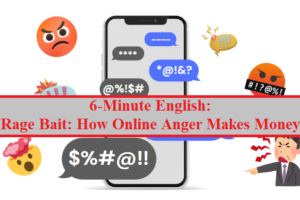30 اشتباه رایج گرامری در زبان انگلیسی

30 اشتباه رایج گرامری در زبان انگلیسی
30 اشتباه رایج گرامری در زبان انگلیسی
ممکن است هنگام صحبت کردن یا نوشتن متنی به زبان انگلیسی به دلیل آشنا نبودن با قواعد گرامری در انتخاب ساختار مناسب دچار دوراهی شده باشید. در این مطلب به بررسی 30 اشتباه رایج گرامری در زبان انگلیسی می پردازیم.شما با شناختن اشتباهات رایج گرامری در میان زبان آموزان می توانید سطح گرامری خود را تقویت کنید.
1. Using If conditionals
Incorrect: If I will visit London, I will meet you.
Correct: If I visit London, I will meet you.
Rule
Use simple present tense to refer to the future after conjunctions like when, after, if, as soon as.
Examples
I will talk to him when I see him in the next two days.
I will call you as soon as I arrive at the airport.
If the plan succeeds, I will come.
2. Married with/married to
Incorrect: She is married with an engineer
Correct: She is married to an engineer.
Rule
To is a correct preposition to use with married.
3. Every with (singular noun)/ Every with (plural noun)
Incorrect: Every students is intelligent in the class.
Correct: Every student is intelligent in the class.
Rule
A Singular noun is used with every.
4. Using but and although together
Incorrect: Although it was raining, but we went to market.
Correct: Although it was raining, we went to market.
Rule
If the sentence starts with although, don’t use but with that.
Examples
Although cell phones have many merits, demerits cannot be overlooked.
Although he was not well, he attended the function.
5. Your/you’re
Incorrect: What were your answer?
Correct: What was your answer?
Rule
Your indicates possession that is something belonging to you while “You’re” is a contraction for “you are”.
Examples
Where is your cell phone?
You’re responsible for this project.
6. Its/it’s
Incorrect: Its Sunday morning.
Correct: It’s Sunday morning.
Rule
“It’s” is a contraction for it is.
“Its” is a possessive pronoun for things.
Examples
The floor looks great with its new mat.
It’s raining outside.
7. There/their/they’re
Incorrect: Parents work for there children.
Correct: Parents work for their children.
Rule
There is generally used for a place.
Their refers possession, something belonging to them.
They’re is a contraction for They are.
Examples
Children are playing with their toys.
There are many shops.
They’re going to Delhi.
8. Unique/most unique
Incorrect: This is the most unique dress.
Correct: This is the unique dress.
Rule
Adjectives like unique, ideal, entire, extreme, perfect do not admit different degrees of comparison.
Examples
That job is perfect for him.
These conditions are ideal.
9. Me/ I
Incorrect: Smith and me went to the mall.
Correct: Smith and I went to the mall.
Rule
When talking about doing some activity with someone else, use his/her name followed by I.
Examples
My brother and I love ice cream.
John and I are planning a trip.
10. Then/than
Incorrect: She is beautiful then her.
Correct: She is beautiful than her.
Rule
Than is used for a comparison.
Then is used for planning a schedule or to indicate instructions.
Examples
He is clever than her.
First I will go to Amritsar then Delhi.
11. Amount/number
Incorrect: A greater amount of people are visiting the stadium.
Correct: A greater number of people are visiting the stadium.
Rule
The amount is used for uncountable commodities.
The number is used for countable things.
Examples
A large amount of sand is needed for the project.
We can watch a number of TV shows.
12. Fewer/less
Incorrect: There are less dresses.
Correct: There are fewer dresses.
Rule
Fewer is used for countable items.
Less is used for uncountable commodities.
Examples
There was a less rainfall last year.
There are fewer students in the class.
13. Did not
Incorrect: I did not saw him yesterday.
Correct: I did not see him yesterday.
Rule
Use base form of the verb with did.
Examples
I did not study Maths.
He didn’t get up early today.
Her mother did not allow her to go out with her friends.
14. Too/enough
Incorrect: This shirt is too enough for me.
Correct: This shirt is too big for me.
Rule
Too is used before adjectives and adverbs. So,, in the above sentence use too with the adjective big.
Enough is used before nouns.
Examples
I don’t have enough time.
The ring was too small.
15. Gerunds
Incorrect: We enjoy to go for walk after dinner.
Correct: We enjoy going for walk after dinner.
Rule
A gerund is a verb form which functions as a noun. In other words, a gerund is a noun made from a verb by adding “-ing.” There are some verbs like dislike, which are always followed by a gerund.
Examples
We, enjoy going for a walk. (The gerund always follows the verb ‘enjoy’.)
I love eating ice cream.
16. Every day/every day
Incorrect: He need a car for his every day activities.
Correct: He need a car for his everyday activities.
Rule
Every day is an adjective that means commonplace or happening every day.
Every day is an adverbial phrase that means each day or daily. It can be replaced with each day or all days.
Examples
I meet him every day.
He goes to college every day.
I need a laptop for my everyday work.
17. Possession shared by two persons
Incorrect: It is Smith’s and Peter’s car.
Correct: It is Smith and Peter’s car.
Rule
Use apostrophe only, after the name of the second person
Example
This is Mark and Smith’s house.
18. His/hers/its
Incorrect: The dog lost his bone. (The gender is unknown.)
Correct: The dog lost its bone.
Rule
Use “it” if you don’t know the gender of an animal.
Example
His dog participates in many dog shows. It has won many prizes.
19. Well/good (happiness)
Incorrect: He feels well.
Correct: He feels good.
Rule
Use good when expressing happiness.
Examples
She feels good after attending a concert.
He feels good by working for the company.
20. Well/good (quality)
Incorrect: She cooks good.
Correct: She cooks well.
Rule
Use well when expressing a quality of someone or something.
Examples
The machine works well.
She sings well.
21. Each is/ Each are
Incorrect: Each of the cars are fast.
Correct: Each of the cars is fast.
Rule
Use singular verb (is) with indefinite pronouns (such as each, none, neither)
Example
Each of the students is fast.
Neither of them is my classmate.
One of my friends is obese.
22. One of the …
Incorrect: One of the train is late.
Correct: One of the trains is late.
Rule
In the above sentence, the singular countable noun train follows the quantifier one, which requires a plural noun.
Examples
Taj Mahal is one of the seven wonders of the world.
He is one of my best friends.
23. Police is / police are
Incorrect: The police is coming.
Correct: The police are coming.
Rule
Use plural form ‘are’ when referring to police in general. The word police is an aggregate noun, a word representing an indefinite number of parts; aggregate nouns have a plural form. When referring to a single person or a specific department, use singular ‘is’.
Examples
The police are blocking off the street where the robbery occurred.
The police department is at the corner of the Main street.
24. Misplaced adverbs
Incorrect: He almost washed all of the cars.
Correct: He washed almost all of the cars.
Rule
Be careful where the adverb is placed in the sentence as it has a different meaning. Both the sentences above have the different meaning.
25. The omission of second part of comparison
Incorrect: Smith likes Maths more than English.
Correct: Smith likes Maths more than he likes English.
26. An/a
Incorrect: It is a old television set
Correct: It is an old television set
Rule: If the beginning of the word sounds like a consonant, we use a. If it sounds like a vowel, we use an. We hear a vowel sound at the beginning of uncle and a consonant sound at the beginning of university (you-ni-ver-sity).
Examples:
a horse
an hour
a university
27. Alternative/alternate
Incorrect: The salad is a healthier alternate.
Correct: The salad is a healthier alternative.
Rule
Alternate: Occur in turn repeatedly.
Alternative: Available as another possibility or choice.
Examples
The government alternate between the two parties.
The various alternative methods for resolving disputes.
28. Amicable / Amiable
Incorrect: The teams were amicable.
Correct: The teams were amiable.
Rule
Amicable: Used for arrangements or settlements agreed peacefully by parties.
Amiable: used to describe kind, gentle and friendly people.
Examples
The amiable young man greeted me.
The meeting was amicable.
29. Among/between
Incorrect: She could not decide among the two shirts.
Correct: She could not decide between the two shirts.
Rule
Use ‘between’ when the comparison involves only 2 choices. ‘Among’ is used when there are 3 or more choices.
Examples
They had to choose the winner between the red and the blue teams.
They had to choose the winner among the 5 competing teams.
30. Beside /besides
Incorrect: Ask him to sit besides me.
Correct: Ask him to sit beside me.
Rule
Beside means next to
Besides means in addition to
Examples
The bride was sitting beside the groom at the reception.
Besides her famous cupcakes, she will donate cookies and a pie to the bake sale
مطالبمرتبط:
هفت اشتباه در رایتینگ آیلتس که نمره شما را زیر 7 می کشد!
گرامر آیلتس : قیدهایی که معمولا به اشتباه به جای هم به کار می روند!



